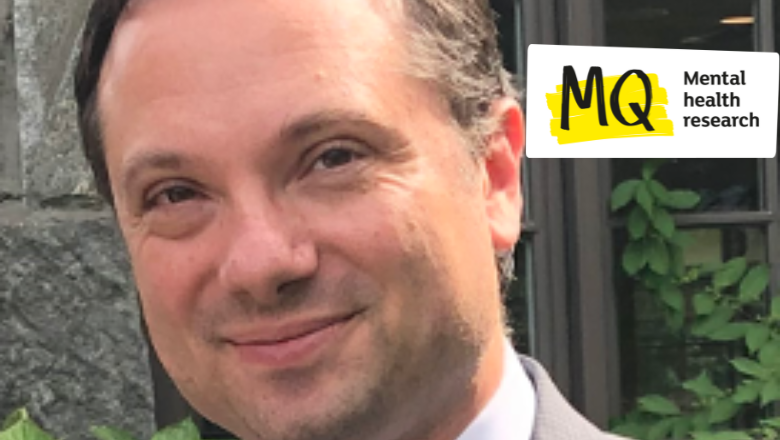The Life Of A Mental Health Research Fellow in the USA

Applications to become an MQ fellow are open for researchers in the United States. This is an opportunity to receive not only financial support but also practical support from the MQ team. But what is it like to apply and be selected for an MQ fellowship?
One of the first ever MQ Fellows selected was Dr Joshua Roffman from Harvard University and Massachusetts General Hospital . He tells us the inside story of the process and what being an MQ fellow is like.
I was thrilled and honoured to be selected as one of the first MQ Fellows in 2014. At that point in my career, I was experienced enough to know that I needed to shift my focus to achieve greater public health impact – to the area of prevention, where there is tremendous unmet need in psychiatry. But it was also early enough in my career that this shift would be considered too scientifically risky by large funding agencies such as NIH (National Institutes of Health) to invest in.
Exciting Beginnings
The MQ Fellows program seemed like the perfect catalyst for me at the time, as it provided support to grow in a new area. Much of my prior research had focused on the biology of chronic psychosis using brain imaging and genomic tools and had pointed to a promising treatment lead involving supplemental folic acid. Indeed, clinical trials conducted by our group showed some degree of benefit, but well below the level needed to substantially improve outcomes.
At the same time, other groups using different tools – population health and birth cohort studies – were finding that folic acid delivered early in prenatal life conferred substantial protective effects against autism risk. Given known areas of overlap in risk for autism and schizophrenia, I wondered whether periconceptional folic acid might also confer protection against schizophrenia risk.
But there were daunting challenges, both from an experimental design standpoint given the two decades between prenatal life and typical schizophrenia onset and given my lack of expertise in population-level studies.
Ambition and Mentorship
MQ provided the platform not only for me to develop and test an ambitious idea, but also to receive additional mentorship from one of the world’s experts in this area (Dr. Ezra Susser).
We decided to leverage the US population-level rollout of folic acid fortification of grain products in the late 1990s. This intervention rapidly doubled blood folate levels in women capable of pregnancy and dramatically reduced spina bifida incidence. As a “natural experiment”, we used this to study effects of increased periconceptional folic acid exposure on brain development through adolescence.
Using existing MRI data from two large groups of adolescents, we found that those born during or just after the fortification rollout showed more favourable patterns of cortical development than those born just before and that this pattern associated with reduced risk of psychotic symptoms.
This finding pivoted my career trajectory, leading to substantial additional funding from both federal and non-federal grants.
Moving Forward From Here
The focus of my lab has now shifted to early brain development, with the goal of discovering, developing, and implementing additional interventions that promote healthy brain development, with folic acid as the prototype.
We continue to be focused on psychosis prevention as the primary endpoint but have also broadened to consider risk for other psychiatric disorders that may have shared biological underpinnings.
We are studying individuals from early in pregnancy through late adolescence with a broad arsenal of approaches, from imaging and genomics to prospective cohort studies, to qualitative research meant to reach families who have been historically excluded from translational psychiatry research.
All of this is thanks to MQ, and to their investment in me at a critical time in my early career. I feel fortunate to be a member of the MQ community, and as someone who now trains early career scientists myself, I am that much more grateful for the opportunities that they provide.
Our thanks to Dr Joshua Roffman for his story. You can read Joshua’s full paper here.
If you would like to apply for the next round of MQ Fellowships, find out more about the 2024 Fellows opportunity and how to apply here.
Source link
#Life #Mental #Health #Research #Fellow #USA

